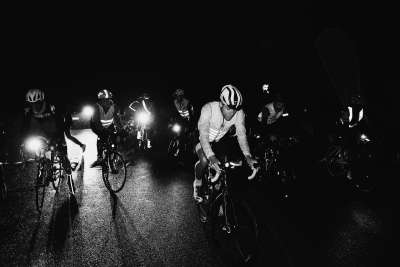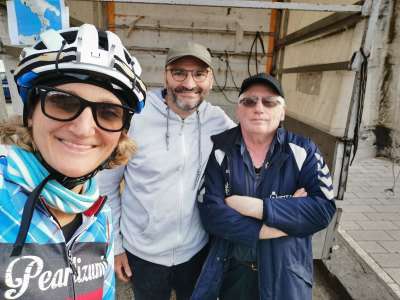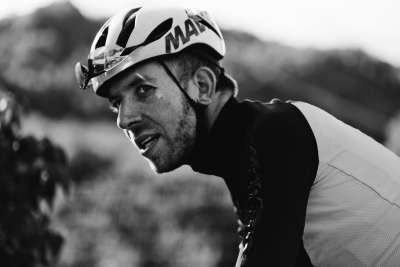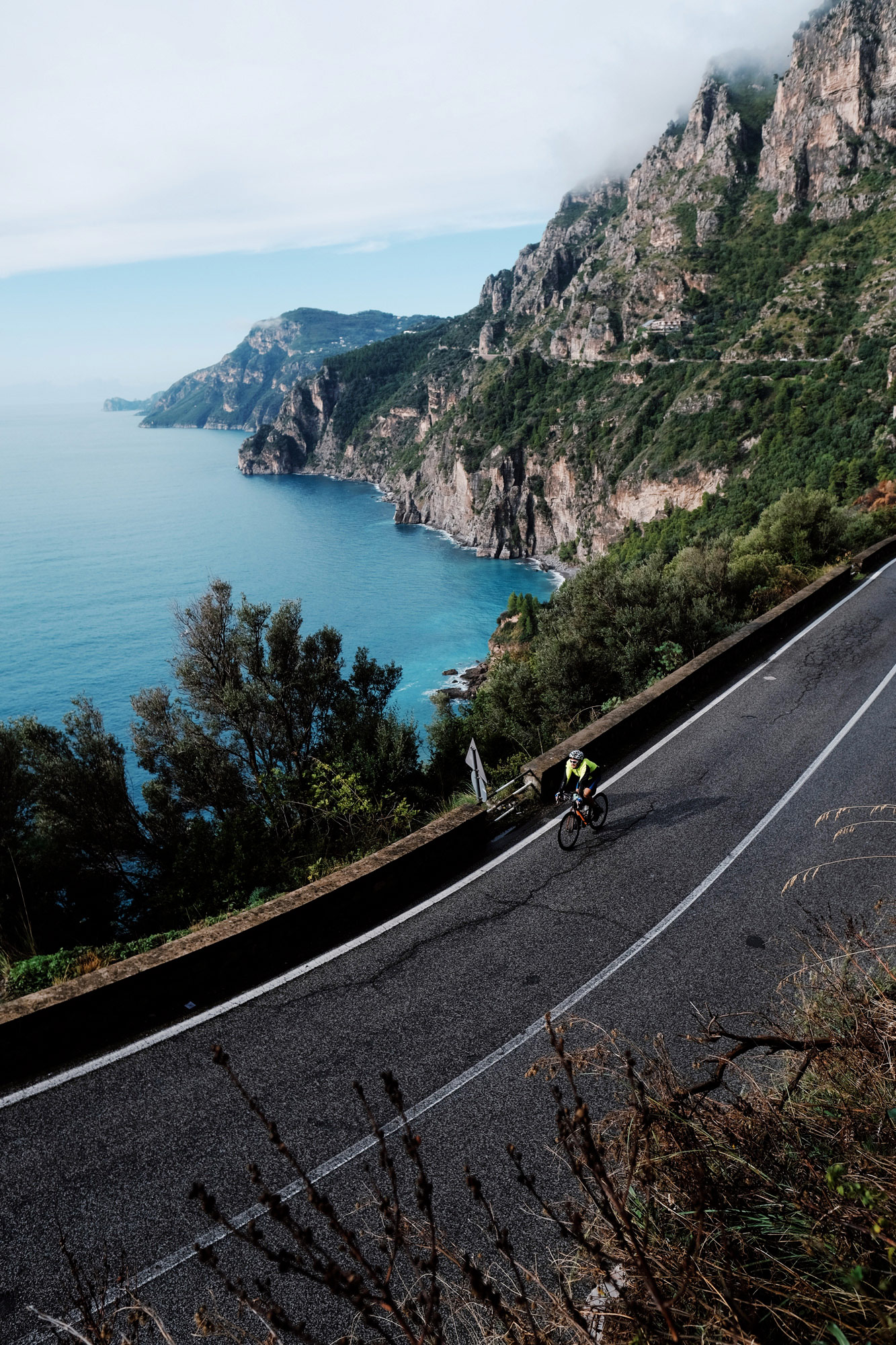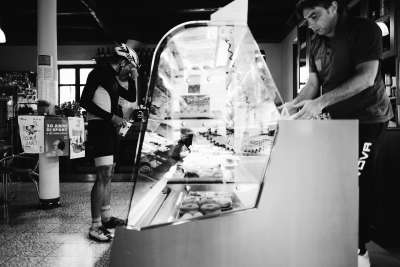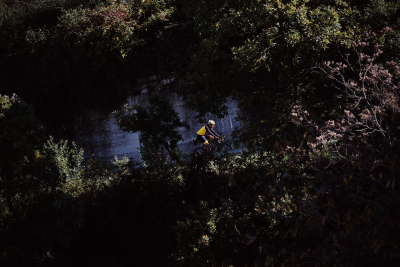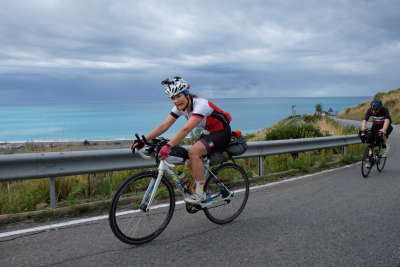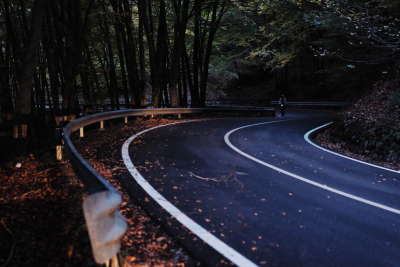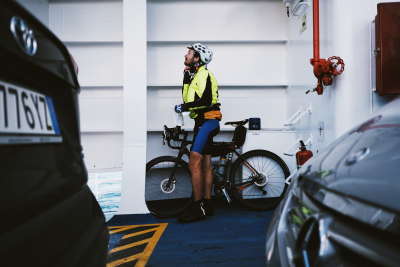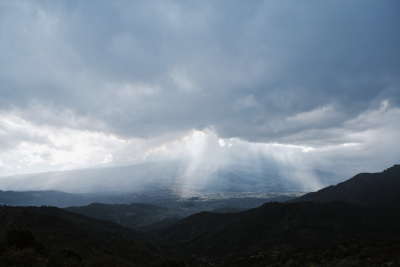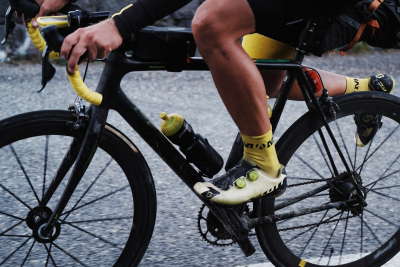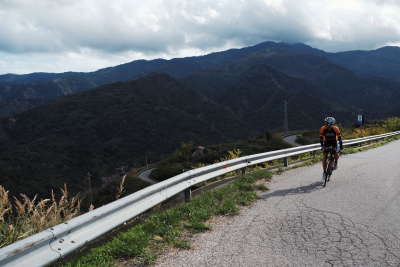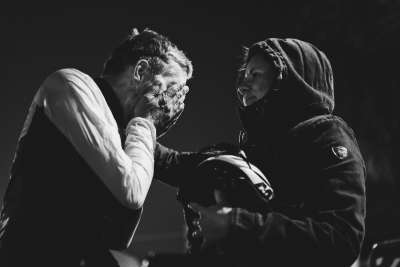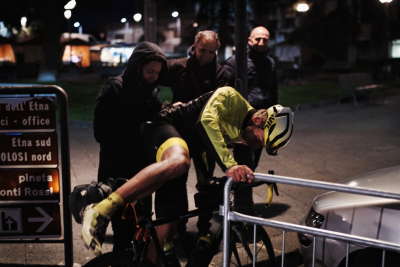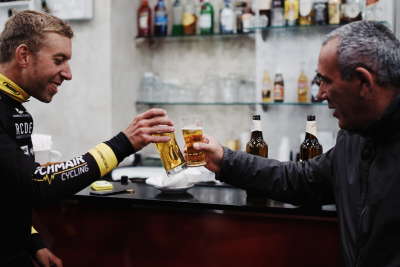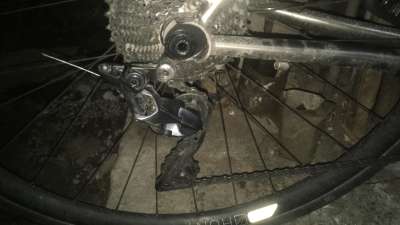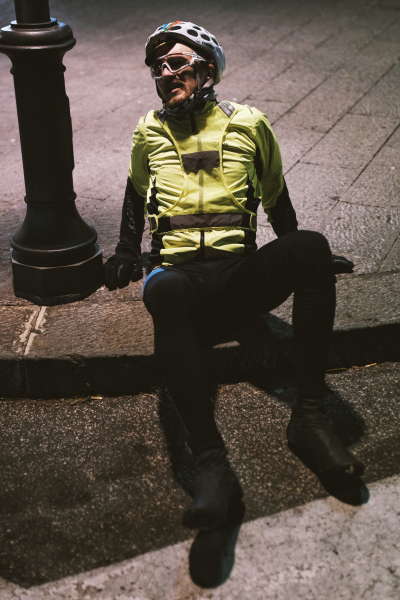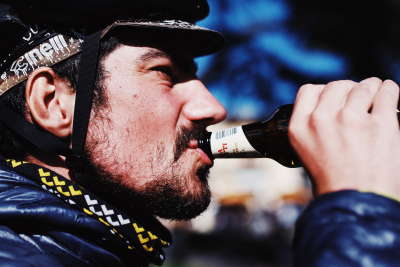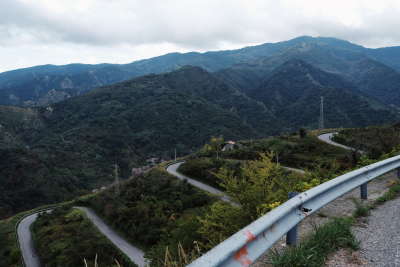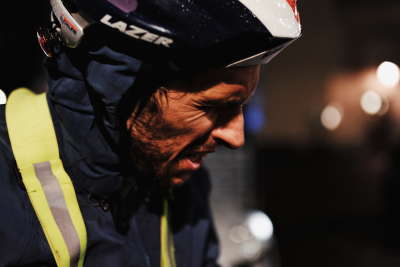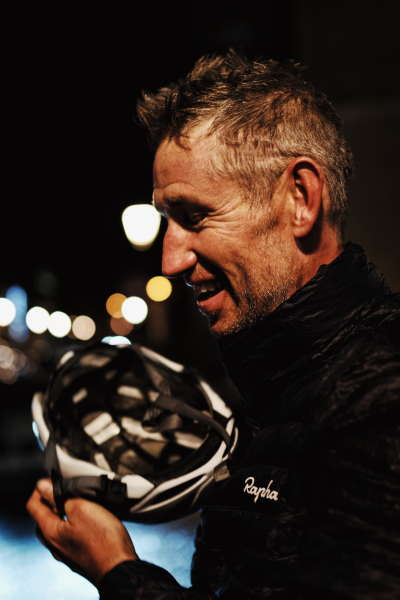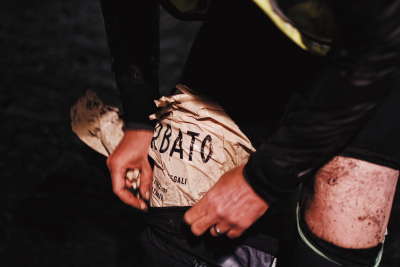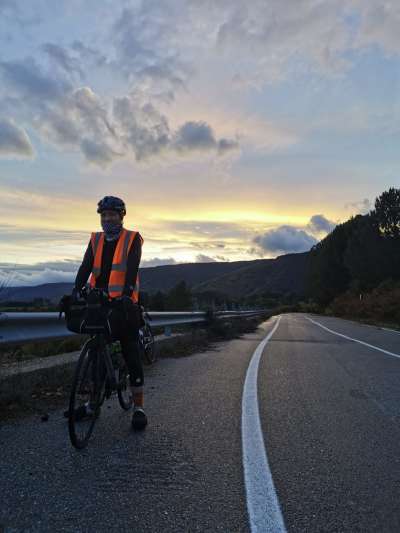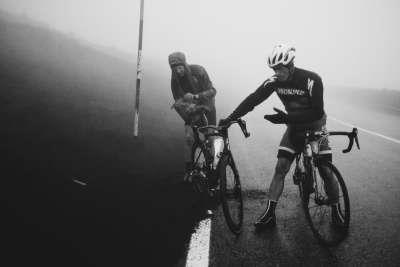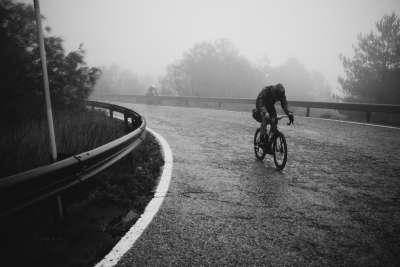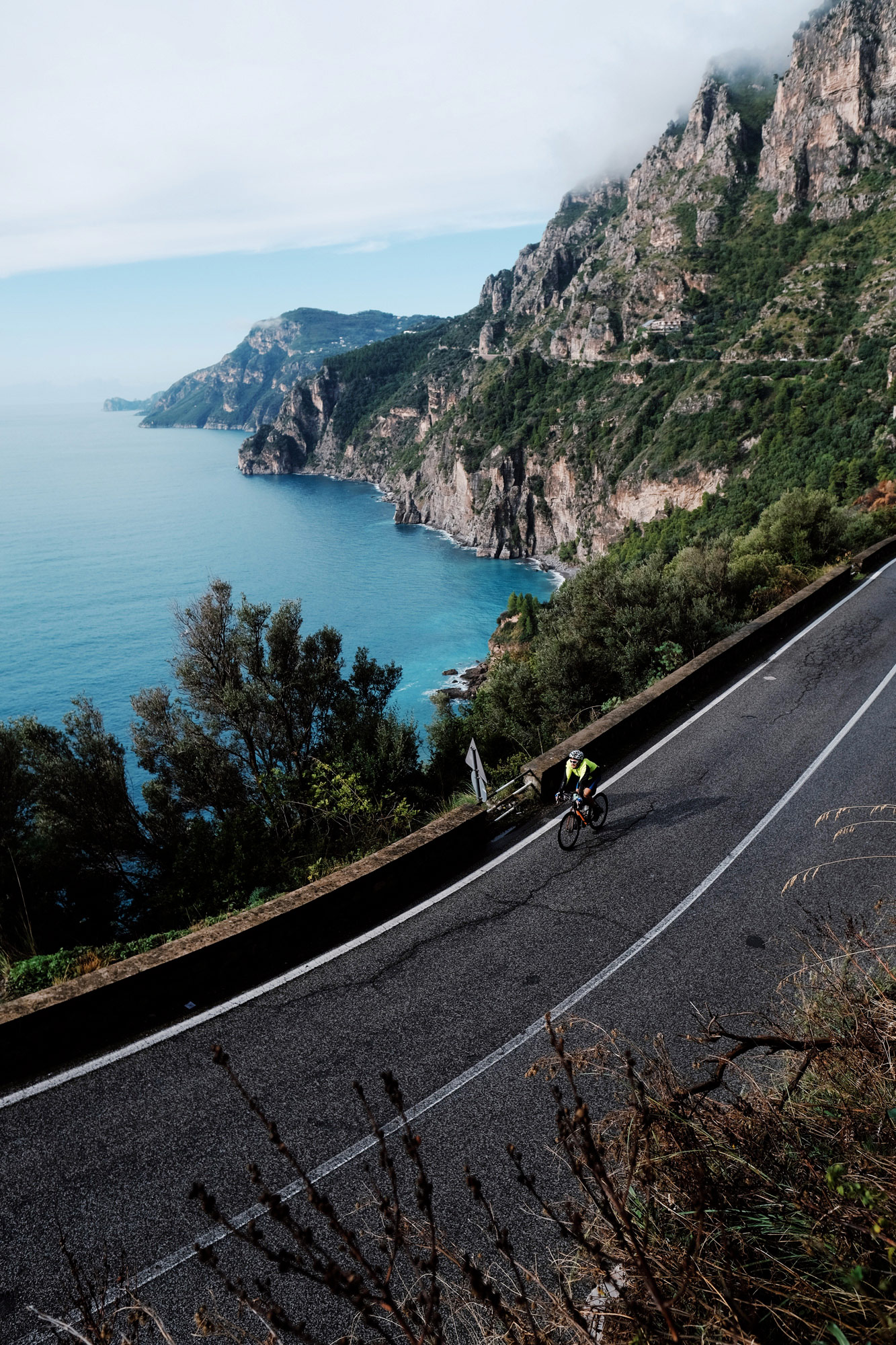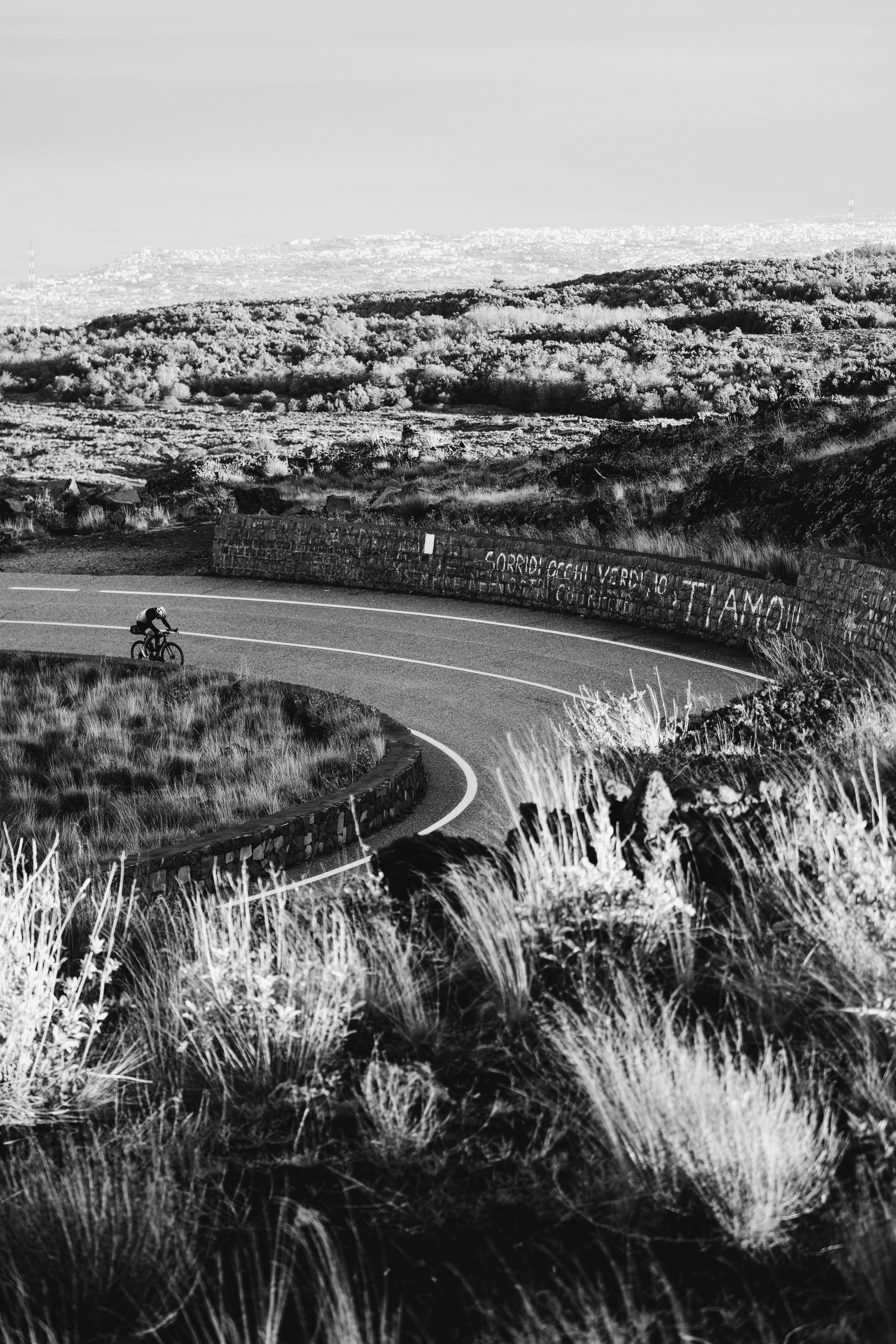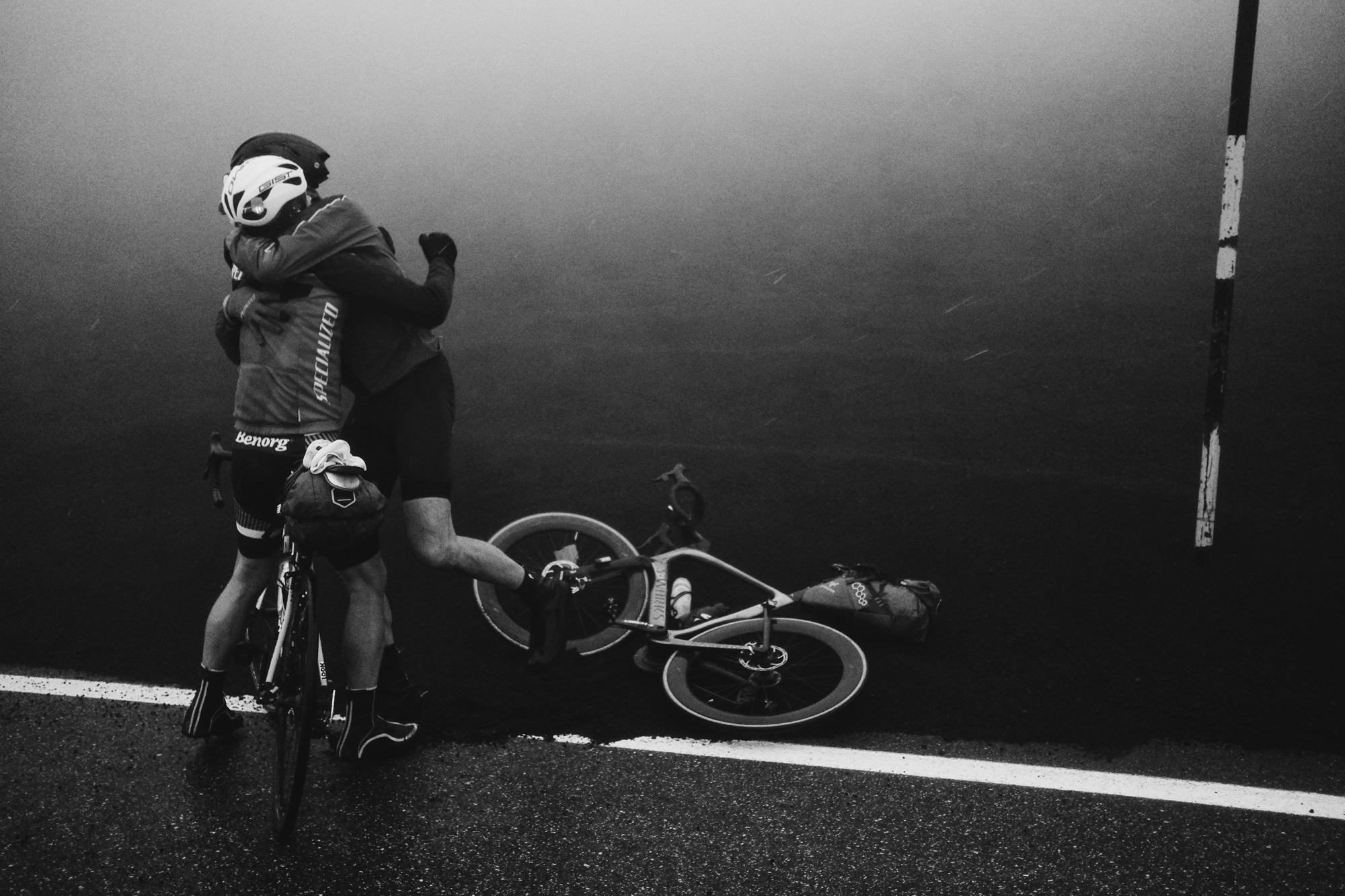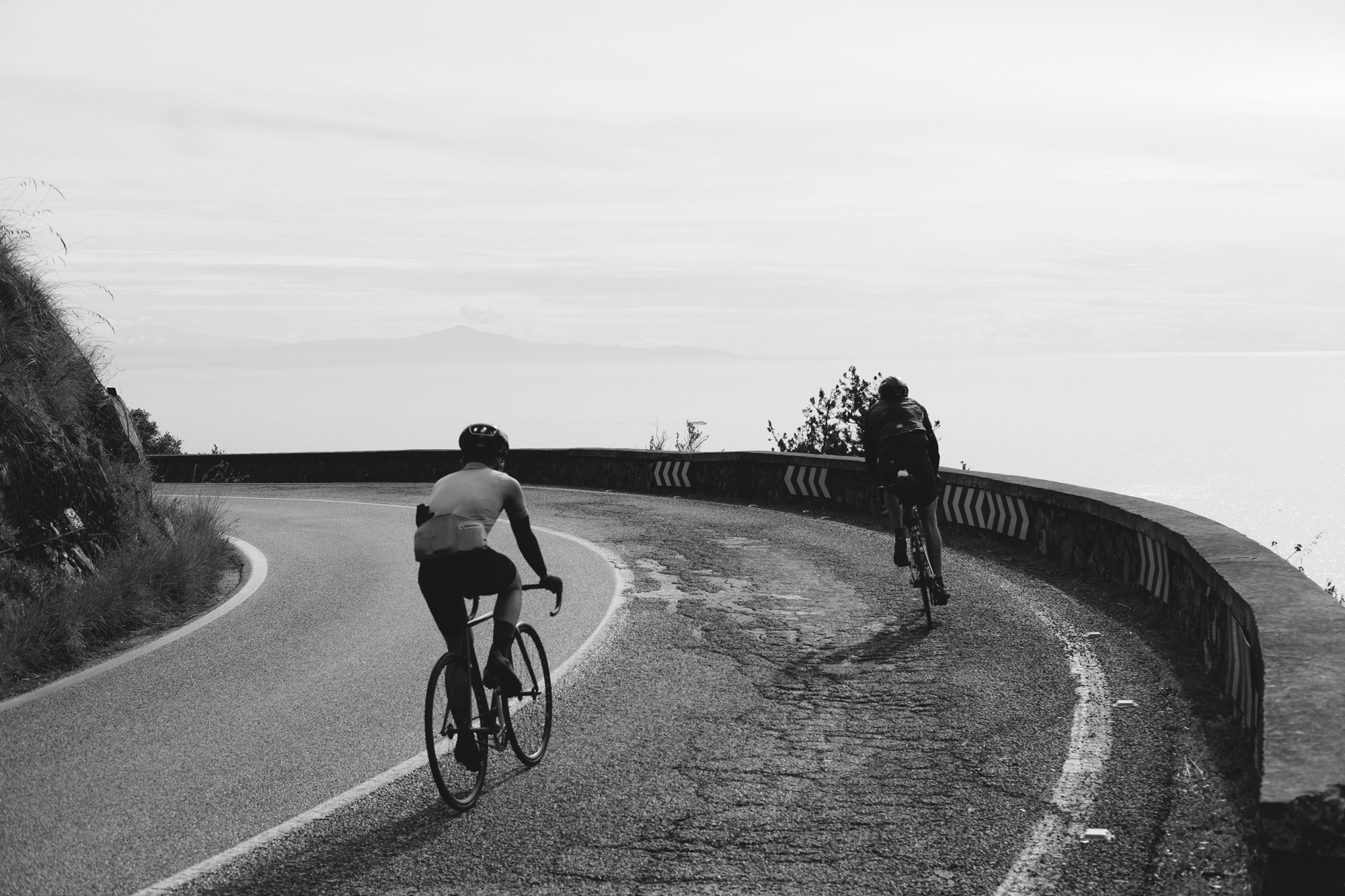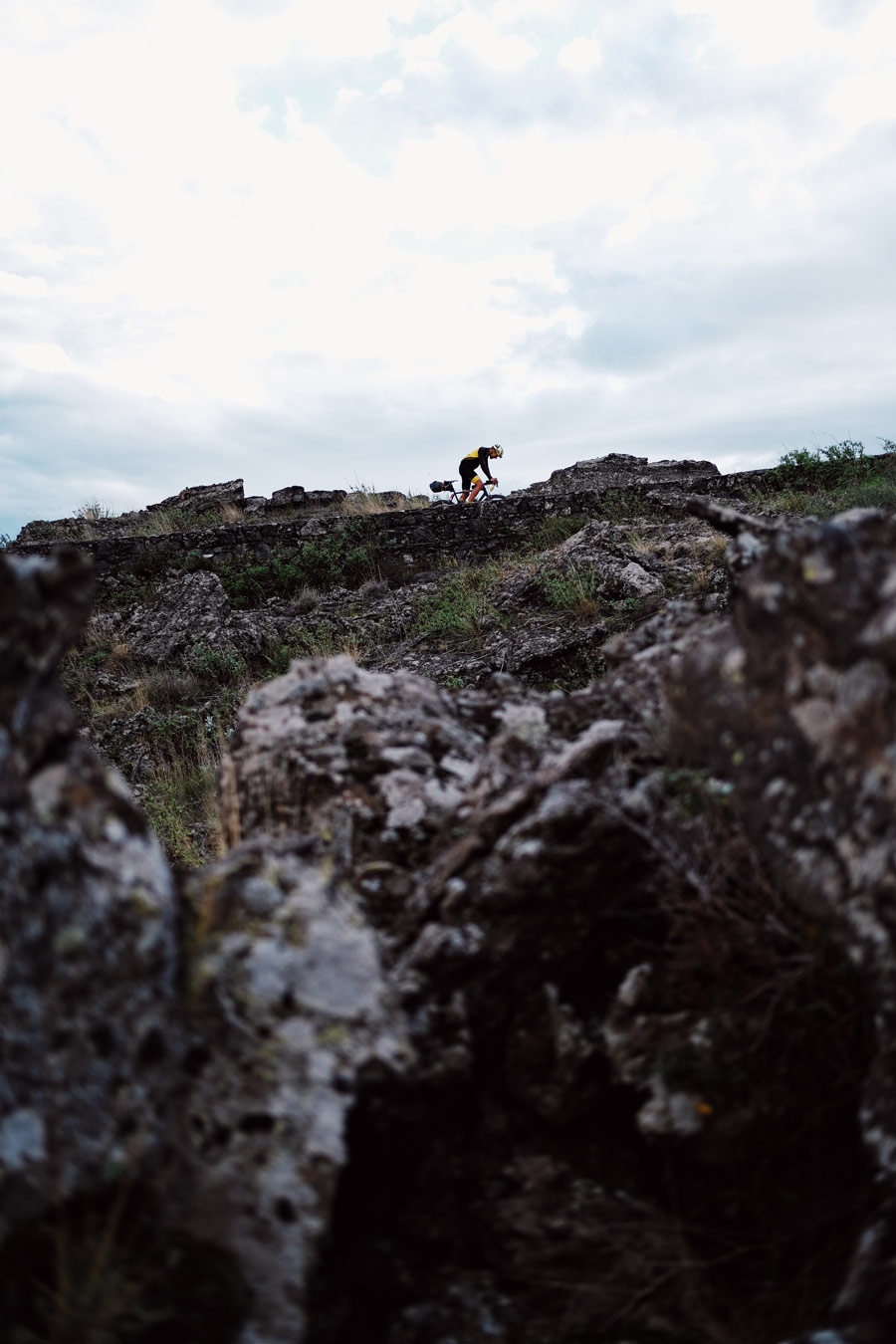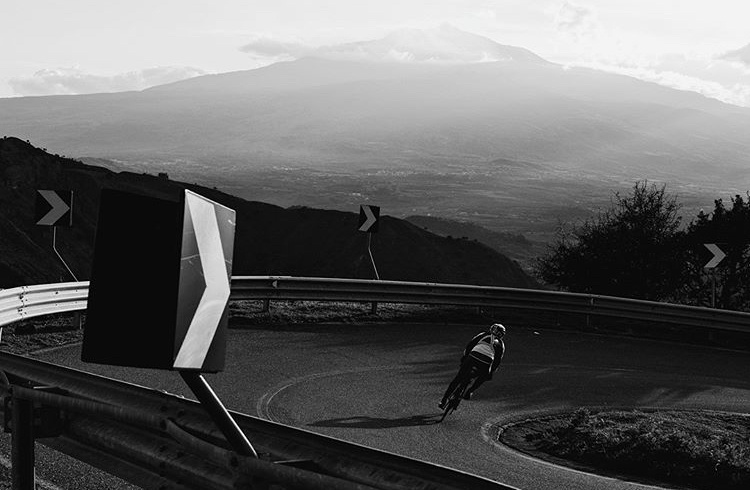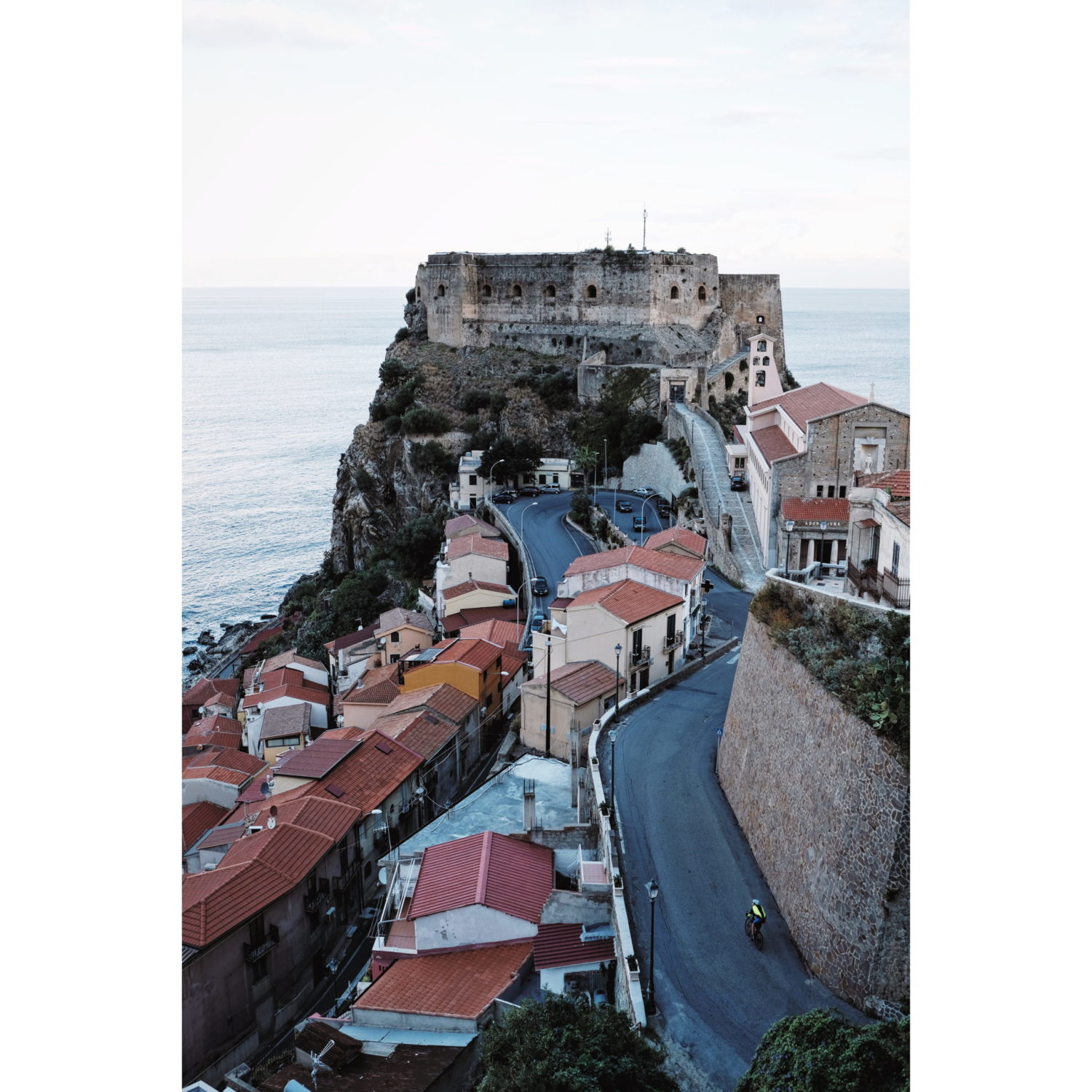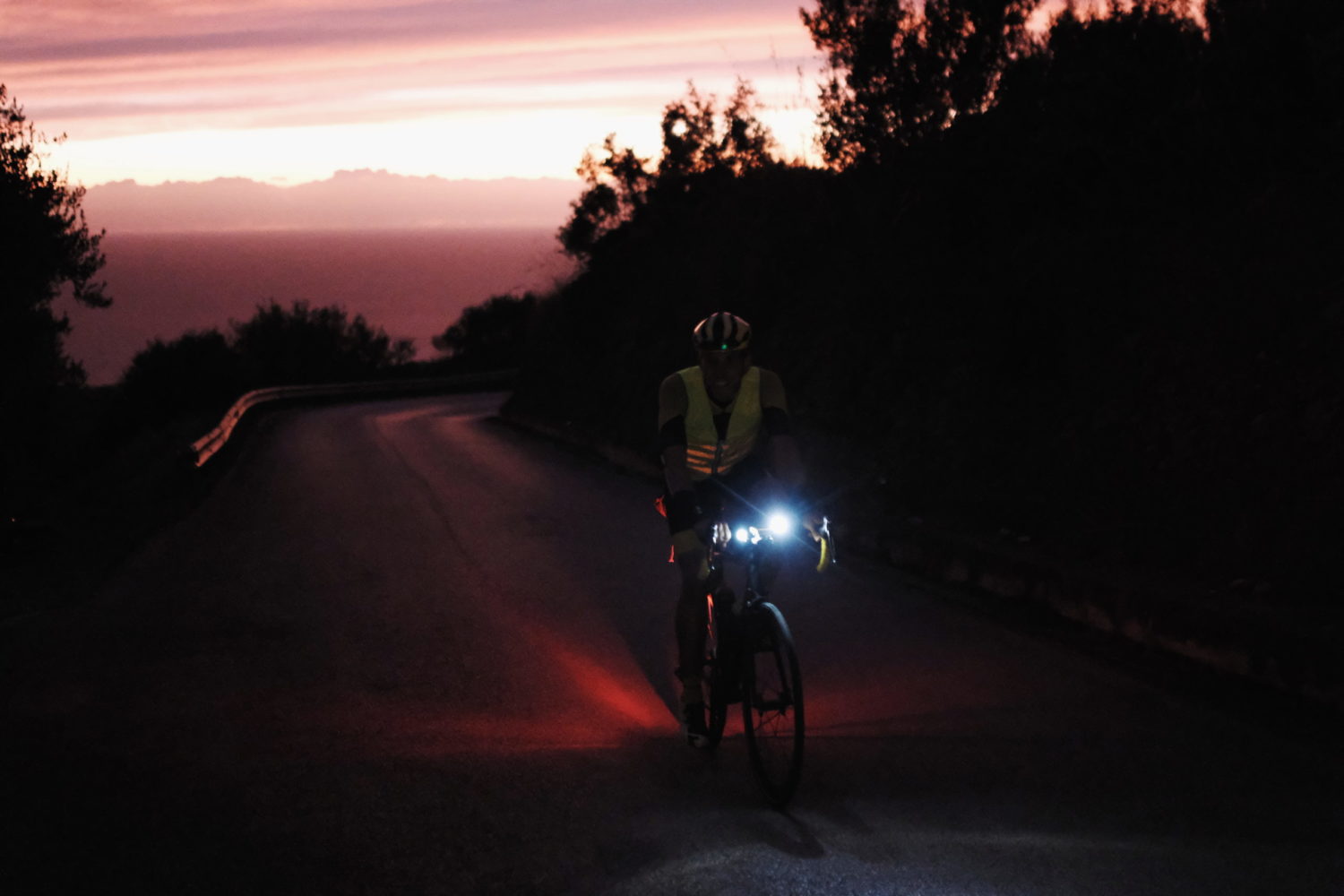The Two Volcano Sprint is the single-stage, set-route event staged between Italy’s two iconic volcanoes – Mt. Vesuvio, set on the Gulf of Naples and Mt. Etna on the island of Sicily. The route was designed specifically to showcase Italy’s largely unexplored south.
The challenge begins at the foot of Mt. Vesuvio, near the city of Naples, before heading south through the Valle Delle Ferriere and along the spectacular coastal road towards the town of Scalea. From there, the race cuts inland. 2VS might be relatively short by the standards of endurance cycling, but the middle part of this race sees riders tackling Italy’s craggy central spine – the Apennine mountains – where the gradients are relentless.
Once they reach the town of Villa san Giovanni in Italy’s far south, riders board a ferry to Sicily and the port of Messina. From there, they begin their final push to crest Mt. Etna and reach the race finish in Nicolosi.
The 2019 Challenge Begins
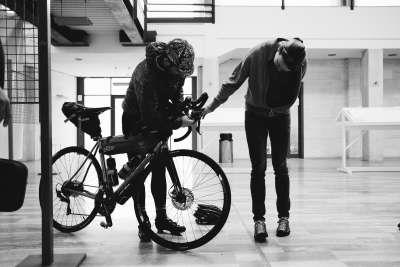
Traditionally, Naples boasts somewhere upwards of 200 sunny days per year – the day preceding the inaugural Two Volcano Sprint, however, was not one of them. Heavy rainfall had blown in off the Tyrrhenian Sea, and by the time the 2VS riders had gathered in the small town of Ercolano for the rider briefing, the roads were slick and wet.
In the week preceding, rumours had circulated that some of the pre-race favourites were dropping out due to illness and that night, those rumours were confirmed. Fiona Kolbinger, winner of #TCRNo.7 and fellow race veteran Bjorn Lenhard had both pulled out.
Early morning, November 7th, the rain had largely passed but a heavy grey mist still hung over the bay of Naples. As the riders gathered for the start near the base of Mt. Vesuvio, there were jokes about which of the Brits had brought the fog with them. In the morning’s weak morning glow, the riders set out into the dark and wet to contest the first Two Volcano Sprint.
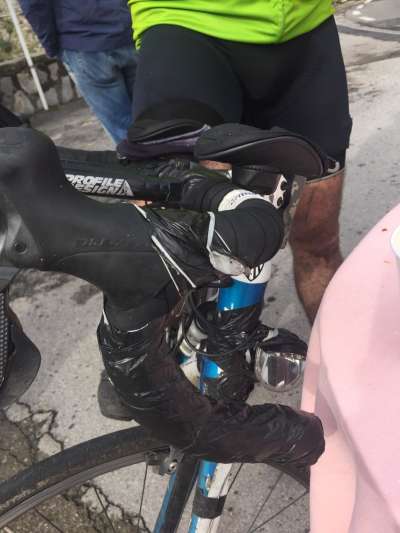
By 7:00am local time, the riders had crested Mt. Vesuvio and were headed south over Napoli’s flat outskirts. Above them, the clouds gave way and the sun was shining weakly through. The racers’ luck had not completely changed, however. Ulrich Bartholmoes suffered three punctures that morning alone, while Mary Mackay remained a way back from the leaders after losing her way on the slopes of Mt. Vesuvio.
Pairs riders Stu McCormick and Andy Tibbett suffered an early topple that broke Andy’s handlebars. The hunt for a replacement set was successful once the shop opened and the two set a fast pace chasing the rest of the pack.
Not the only ones with handlebar problems, Adrian O’Sullivan proudly rolled up for a coffee break displaying some of his latest duct tape quick repairs from a previous race.
“If it ain’t broke, don’t fix it” as they say…
The puncture fairy managed to do a good day’s work not long after sunrise with Ulrich experiencing three punctures and two trips to a local bike shop. By afternoon, he was sitting in third place around 25km behind the front leader, Andrew Phillips.
Word of the race was already spreading amongst the locals and a couple of trail angels in Salerno set up a van offering free refreshments to passing riders. Pamela managed to sneak a selfie before riding off into the distance in search of Etna.
By the close of Day 1 of the inaugural Two Volcano Sprint, the field had been well and truly broken up, with riders dotted along the road from Acciaroli all the way to Campotonese, 150km south.
After a challenging beginning to his race involving three punctures and visits to two different bike shops, Ulrich Bartholmoes fought his way into the race lead by nightfall.
Not far behind him was Andrew Phillips, who held the lead earlier that day with Adrien Liechti a little way down the road. During the night, the three riders cut inland away from the coast, making their way east into Italy’s mountainous centre. While 2VS may be a relatively short race by the standards of ultra-endurance cycling, Italy’s rugged terrain meant the first 300 kilometers of the route were just the warm up for what was to come. The road ahead would test even the strongest racers.
As night fell, riders of the inaugural Two Volcano Sprint had decisions to make – would they sleep, or push on through until dawn? Come morning, the shape of the race had already changed.
Two Volcano Sprint – Day 2
By the time morning broke on the second day of Two Volcano Sprint, the elastic had well and truly snapped – the race field was now stretched across several hundred kilometres, from the leaders in the Appenine mountains to the back-markers still on the coast of the Tyrrhenian Sea.
Most of the leading 10 riders had pushed through the night without sleep, and were heading into their second day of continuous riding. In the mid-pack, a little further back, some riders had chosen to sleep on the roadside for a few hours but now found themselves 200km or more from the race lead.
By 8am local time, race leader Ulrich Bartholmoes had – incredibly – already rode 550km and reached the midpoint of the Two Volcano Sprint. Ulrich took an incredibly aggressive approach to this race, pushing out from the front all the way through the night until he stretched his lead to a full 100km over Andrew Phillips and Adrien Liechti, who remained neck and neck for second-place all the way through the night.
By mid-morning, the race had its first scratches. Bryan Averre pulled from the race after experiencing problems with his Garmin computer and falling back to the tail end of the race.
Meanwhile, the pairs team of Stuart McCormick and Andy Tibbet were forced to pull out due to personal reasons relayed from back home in the UK. Seeing these two riders have their race cut short was a great shame – the two of them had shown a great deal of perseverance in getting themselves back out onto the road after mechanical problems early on.
End of Day 2
As darkness fell at the end of day 2, Ulrich Bartholmoes continued his unrelenting ride towards Sicily, having barely stopped during the last 36 hours. He was now only 370km from the finish. Once again, the amount of sleep (or lack of) would be a deciding factor in his grip on the race lead. Was Ulrich on course for yet another victory this season?
Both Andrew Phillips and Adrien Liechti were in hot pursuit, jostling for second place since the start of the race. They remained neck & neck, at times only separated by 15km – just a stone’s throw in a 1,100km race. Both had taken only short breaks over the last couple of days, so the night’s resting patterns could significantly affect the balance by sunrise.
Further down the field, the women – Mary Mackay and Pamela Cepparulo – were also closely matched. They both stopped for a similar amount of time at night, and maintained a similar riding pace. They were also separated by only 15km, making them another pair to keep an eye on as the race developed.
It was a tough day of climbing for the riders, particularly those who chose to skip the first night’s sleep entirely. Adrian O’Sullivan paused early in the evening to find a hotel at the halfway mark, after struggling during the afternoon. Others took a longer rest the second evening, but some pushed on with only a short rest the second night.
The second night of the inaugural Two Volcano Sprint saw riders face many different challenges and respond with many different approaches.
As morning broke, however, one constant remained the same – Ulrich Bartholmoes had continued his relentless push south at the front of the race, and was now within striking distance of the finish at the foot of Mt. Etna.
After being forced to reroute around a road blocked by a landslide early last night, Ulrich chose to stop for a short rest of just two hours before continuing on. In a bid to close the distance between them, second-placed Andrew Phillips rode through the night without rest and at one point had cut the gap to around 50km. That effort took its toll, however, and once Ulrich started riding again he began to stretch out his lead once more.
By 4:30 am, Ulrich was on the ferry crossing between the Italian mainland and the port of Messina on the island of Sicily. On arriving in Messina, the climbing began immediately as he headed south through the foothills surrounding Mt. Etna, 200 km from the finish. Although Andrew Philips was not far behind, the gap was enough that it would take a truly remarkable effort to overturn the deficit.
At the other end of the race, Rob Gardiner was struggling with stomach problems and nausea. He chose to hunker down in Costenza to try and recover enough that he could continue later in the day. Meanwhile, the race to be first woman remained incredibly tight with Mary Mackay holding a slim 20km lead over Pamela Cepparulo just behind her.
At the other end of the race, Rob Gardiner was struggling with stomach problems and nausea. He chose to hunker down in Costenza to try and recover enough that he could continue later in the day. Meanwhile, the race to be first woman remained incredibly tight with Mary Mackay holding a slim 20km lead over Pamela Cepparulo just behind her.
The Endgame
Ulrich Bartholmoes wrestled his bike up the ice-cold slopes of Mt. Etna, edging himself metre by agonising metre towards victory in the first-ever Two Volcano Sprint.
12 hours previous, Ulrich’s hold over the race seemed unshakeable – he had a healthy lead over his closest chasers and seemed ominously in control of his own efforts – but the last hours saw cracks beginning to appear in the German’s challenge.
The recurrence of an old knee injury picked up racing the Transiberica was playing havoc with Ulrich’s ride – forcing him to alternate between climbing exclusively out of the saddle, or else pedalling with only one leg.
All this in turn brought on a severe case of Shermer’s neck. Ulrich may have only been 40 km or so from the finish, but the gradients he was facing were brutal… half of the race’s total elevation was packed into the last third of the course, and it had begun to take its toll.
He may still have been carrying a buffer over his closest chaser, Andrew Phillips, but Ulrich was now in a different race altogether – a race to the finish before his body gave out.
Behind him, Andrew Phillips was attempting to close the gap, while Adrien Liechti had become the third rider to make the ferry crossing to Sicily. Barring injury or mechanical problems, all three of the leading riders were set to finish the 1100 km in under three days – a truly remarkable feat in itself.
Meanwhile, Pamela Cepparulo’s Garmin troubles showed no sign of abating – she was navigating as best she could using her mobile phone for guidance, yet remained in indomitable spirits.
The first rider home
The race had its first rider home, and the Two Volcano Sprint its first ever winner.
Ulrich Bartholmoes claimed victory despite being forced to climb Mt. Etna with only one functioning leg and Shermer’s neck. He rode 1100km and climbed 24,000 metres of ascent, arriving at the finish line in Nicolosi in a time of 59 hours and 58 minutes. Considering the time and energy-draining mechanical problems that Ulrich faced early on his race, this was a truly impressive ride from a worthy winner of the inaugural Two Volcano Sprint.
Waiting for Ulrich at the finish was his girlfriend, who was able to give him the news that he’d arrived just two minutes under his stated target time of 60 hours.
Also waiting at the finish was the Mayor of Nicolosi. Together with the rest of the 2VS crew, Ulrich hobbled from his bike and into the nearest bar for a well-deserved beer – as well as a few arancini, the traditional Sicilian rice balls the size of small mountains, stuffed with ragu.
The final stretch of the race was already a brutal prospect – yet come night, things became even more challenging for 3rd-placed Adrien Liechti when the gear cable for his rear deraileur snapped inside his shifter.
He was left to tackle the remainder of the route on what was effectively a two-speed bike – hardly an ideal racing setup considering the savage gradients he was yet to face.
Ahead of him, Andrew Phillips was nearing the summit of Mt. Etna. Soon he would begin the freezing descent down the mountain towards the town of Nicolosi. In the cold and dark, that final descent would be a real test of a sleep-deprived rider’s concentration.
The 2nd and 3rd
“Holy. Baby. Jesus.”
If you had to summarise the final 200km of the Two Volcano Sprint in just three words, then you could do a lot worse than Andrew Phillips’ exhausted finish-line summary.
Race Director Juliana Buhring had speculated before the race that many riders could fall into the trap of thinking that, once they’d made the ferry crossing over to Messina, their race was pretty much over. She knew from personal experience, however, that it’s crucial to keep something in the tank for that final 200km push.
At 11:20 pm local time – Andrew Phillips became the second rider to make it home, having made the nerve-jangling final descent of Mt. Etna in the pitch black and sub-zero temperatures. When he finally made it down, he was frozen stiff.
The following morning, Adrien Liechti arrived to complete the 2019 2VS podium. Somewhat unbelievably, both Andrew and Adrien climbed Mt. Etna with only two gears to choose from after snapping gear cables. Considering the distances these two riders had travelled, this misfortune must have felt like a sadistic final twist.
Meanwhile, Robbie Britton and Barry Scott were duelling out a fascinating contest for 4th position. The two riders had been neck and neck for nearly the entire race, exchanging positions constantly over the last 700km. By nightfall, their race would come all the way down to the wire and who had something left to give.
The battle for 4th
After four days, 1,000km of road and over 20,000 metres of climbing, Robbie Britton and Barry Scott were still barely separated.
Just 15km separated the two riders in the final run-in to the finish, with the two even finding themselves aboard the same ferry on the way to Messina.
Britton held onto a slender lead, having pulled away from Scott on the slopes leading upwards to Mt. Etna. At about 8:30 pm, local time, Britton crested the peak and began the long descent into Nicolosi (not, however, before putting on every piece of clothing he was carrying with him).
Barring any misfortune, Britton looked to have secured 4th place in the race – but if this race had taught him anything, it was that Scott would chase him hard all the way to the finish.
Behind them, the race’s leading pair of Michele Petrone and Sergio Punzi had also made the crossing into Sicily. With another 200km of hard climbing left for them tackle before the finish, the two had a long road ahead of them still – but they also had, at least, the promise of the finisher’s party the following night to buoy their spirits.
The final day
At 10:40 pm on the night of the 3rd day, Robbie Britton rolled into the finish to claim 4th place in the inaugural Two Volcano Sprint.
His duel with Barry Scott had been a long one – for nearly 700km, the two riders had been practically neck and neck, but in the end Britton had just enough left in the tank to see it home.
Barely an hour and a half later, around midnight, Barry Scott also rolled into the finish in Nicolosi. Having made the descent of Mt. Etna in sub-zero temperatures, Scott arrived truly frozen stiff – as he climbed off his bike, he pulled from his bib shorts the wads of rolled-up shopping bags he had stuffed there to try and shield himself from the icy wind.
Further back down the road, the rest of the field was now in a race against time to reach Nicolosi before the finisher’s party and thus earn the finisher’s classification. Colin Addison, Pamela Capparulo and Mary Mackay were all – just barely – within striking distance of making the race finish in time but they would need to ride hard without stops if they were to make it.
The Curtain Falls on the inaugural Two Volcano Sprint
Out of the 17 starters, barely a third of the field managed to cover the 1,100km course from Mt. Vesuvio to Mt. Etna in time for the finishing party. The route, so much for being “short” by ultra-distance standards, proved to be incredibly attritional. Winner Ulrich Bartholmoes described 2VS as harder than both the Transiberica and the Transpyrenees put together.
The pairs team of Michele Petrone and Sergio Punzi were not lucky with the weather. By the time they had scaled Mt. Etna late in the afternoon, night was falling fast. Their final run in to Nicolosi just hours before the finishing party was made in the freezing dark, wind, fog and wet – surely the most harsh and challenging descent of Etna made by any of the riders in this year’s race. Michele arrived soaked to the bone and shaking after stopping to change a punctured tube just three kilometres to the finish line. He downed an entire cup of whisky and proceeded to hug the entire room of riders and 2VS crew waiting for him, pronouncing, ‘That was incredible.’
As both finishers and riders who scratched met in Nicolosi for the party, they toasted the challenges of the road and the strong spirit all the riders displayed throughout. The inaugural Two Volcano Sprint ended as all good things in Italy do: with food, wine and lots of stories. And while not all the riders made it in to Nicolosi, all of them were a part of the story of the first 2VS.
Two Volcano Sprint 2019 Roster
| Start N° | Name | Finish N° | Finish time |
|---|---|---|---|
| 4a | Andy Tibbett (Pair) | ||
| 4b | Stuart McCormick (Pair) | ||
| 6 | Adrian O Sullivan | ||
| 7 | Bryan Averre | ||
| 8 | Adrien Liechti | #3 | 11:33 10-11-2019 |
| 9 | Rob Gardiner | ||
| 10 | Andrew Phillips | #2 | 23:20 09-11-2019 |
| 12 | Salvatore Marrone | ||
| 13 | Ulrich Bartholmoes | #1 | 17:29 09-11-2019 |
| 14 | Colin Addison | ||
| 16 | Mary Mackay | ||
| 17a | Michele Petrone (Pair) | #6 | 17:18 11-11-2019 |
| 17b | Sergio Punzi (Pair) | ||
| 18 | Barry Scott | #5 | 00:13 11-11-2019 |
| 19 | Pamela Cepparulo | ||
| 20 | Robbie Britton | #4 | 22:40 10-11-2019 |


